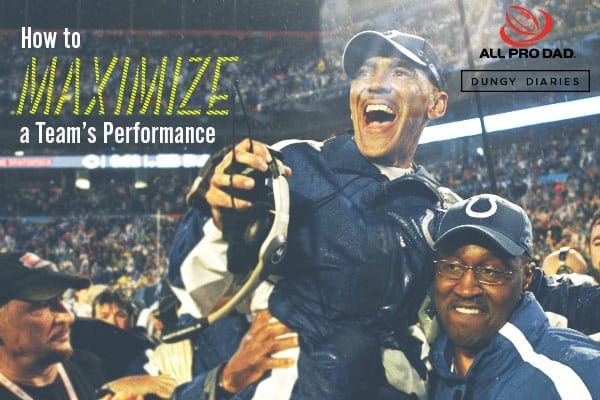You can achieve more with a team than without. I’ve seen it time and time again: A team that is functioning well is more than just the sum of its parts. In fact, the Colts team that won the Super Bowl in 2007 was not the most talented team I had during my years in Indianapolis. But it was the team that came together best and played at a higher level than you might have expected from the sum of its individual pieces. Each member of the organization had bought into our clear vision and the way we planned to accomplish it, both on and off the field. Team members accepted their roles and saw the roles of others as valuable. Together they encouraged and assisted each other in bringing their best to the cause.
The same is true in other areas of endeavor. We have all seen organizations that have floundered and not lived up to their expectations, despite talented individuals. But I have seen numerous organizations accomplish much greater outcomes when each piece is functioning well within the whole. To improve team building and maximize performance, the leaders must do the following.
-
- Put first things first. Create a culture that values people inside and outside the organization. A culture that puts the interests of others first will set a standard by which everyone in the organization will measure his or her own performance.
-
- Get the culture right. The culture of an organization is the first thing other people see. It determines the direction of your organization and the way decisions are made. Get the culture right, and the rest won’t necessarily be easy, but it will be easier. What can you do to start changing the culture of your organization?
-
- Get everyone on the same page. How can you make your leadership more inclusive? How can you help your team to embrace the corporate mission?
-
- Strengthen your organization by embracing diversity. What can you do to build on the differences within your team?
-
- Break down barriers. Confident, secure leaders cross boundaries that otherwise separate society. What can you do to break down barriers inside and outside your organization?
-
- Bring the best people on board. Accept candid feedback and differing opinions with the idea that someone may have a better way.
-
- Accept and promote this truth for the good of the team: We are all important, but we are not indispensable.
-
- Be firm in the essentials but flexible in the nonessentials. Focus on the things that really matter.
Treat the members of your team as you would volunteers. Mentor leaders realize the power of persuading others to follow, rather than requiring them to follow.











